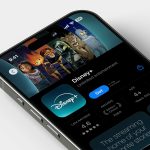
- Media Restructuring
- Streaming
- TV Networks
Warner Bros. Discovery Splits to Cut Debt, Refocus Strategy
5 minute read

Media giant Warner Bros. Discovery separates streaming and TV networks to reduce debt and strengthen competitive position
Key Takeaways
- Warner Bros. Discovery splits into two companies by mid-2026: The streaming and studios division becomes “Warner Bros.” while global networks form “Discovery Global Media,” reversing the troubled 2022 merger.
- Stock rises 57.6% over past year: Investor optimism drives share price gains as the company addresses $40 billion debt burden through strategic separation and improved focus.
- David Zaslav leads Warner Bros., Gunnar Wiedenfels heads Discovery Global Media: The CEO transitions to the premium content division while the CFO takes charge of traditional networks including CNN and TNT.
Introduction
Warner Bros. Discovery announced the corporate names and leadership teams for its two new businesses this week, marking a decisive reversal of its 2022 mega-merger. The company splits into “Warner Bros.” for streaming and studios operations and “Discovery Global Media” for traditional networks, with completion scheduled for mid-2026.
The separation addresses the strategic missteps that left the media giant with over $40 billion in debt and eroded value from premium entertainment brands. This restructuring reflects broader industry shifts as companies abandon conglomerate models in favor of focused operations better suited for the streaming era.
Key Developments
Warner Bros. will manage television, film, and video game studios alongside HBO, HBO Max, and Discovery Plus streaming services. The division operates under CEO David Zaslav with key executives including HBO Chairman Casey Bloys and DC Studios leaders James Gunn and Peter Safran.
Discovery Global Media encompasses entertainment, sports, and news networks including CNN, TNT Sports, and Discovery channels. CFO Gunnar Wiedenfels leads this division with CNN Chairman Mark Thompson and TNT Sports Chairman Luis Silberwasser among senior leadership.
The tax-free transaction structure maximizes shareholder value while providing each entity operational independence. According to CNBC, Discovery Global Media will retain up to 20% equity in Warner Bros., which it plans to monetize for debt reduction.

Market Impact
Warner Bros. Discovery shares have surged 57.6% over the past year, significantly outperforming media sector benchmarks. The stock gains reflect investor confidence in the separation strategy and expectations for improved operational efficiency.
Financial performance shows mixed signals with Q1 2025 revenue declining 9.8% year-over-year to $8.98 billion. However, global streaming subscriptions jumped 22.8% to 122.3 million users, demonstrating strength in the company’s digital transition.
Analysts project substantial earnings improvement from a $4.62 per share loss in 2024 to a projected $0.04 per share loss in 2025 and $0.16 per share profit in 2026. The consensus rating remains “Moderate Buy” as investors anticipate enhanced focus and execution.
Strategic Insights
The split acknowledges fundamental shifts in media consumption from traditional cable to streaming platforms. Warner Bros. positions itself to compete directly with Netflix and Disney+ through HBO Max and premium content production capabilities.
Discovery Global Media leverages profitable linear networks and the Discovery+ platform to serve audiences still engaged with traditional television. This approach recognizes that cable networks remain cash generators despite long-term decline trends.
The separation makes each entity more attractive for potential acquisitions by eliminating conglomerate complexity. Focused operations allow targeted strategies rather than compromise solutions that served neither streaming nor traditional media effectively.
Expert Opinions and Data
David Zaslav emphasizes continuity with entertainment legacy, stating the company will “proudly continue the more than century-long legacy of Warner Bros. through our commitment to bringing culture-defining stories, characters, and entertainment to audiences around the world.”
The CEO expressed confidence in the new structure, noting their “unmatched portfolio of storytelling IP, coupled with our incredible creative partners, and now an executive team of proven, bold, and committed creative and corporate leaders.”
Industry analysts interpret the move as acknowledgment that the 2022 merger failed to deliver anticipated synergies. The decision mirrors Comcast’s recent cable asset spinoff strategy, suggesting broader recognition that media conglomerates lack competitive advantages in current market conditions.
Financial backing includes a $17.5 billion bridge facility from J.P. Morgan, expected to be refinanced before completion. This substantial support indicates institutional confidence in the separation strategy and both entities’ viability as standalone companies.
Conclusion
Warner Bros. Discovery’s split represents a significant retreat from media consolidation trends that dominated the past decade. The separation creates two focused entities better positioned to address distinct market opportunities in streaming content and traditional broadcasting.
Early investor response suggests confidence in the strategy’s potential to unlock value previously obscured by conglomerate complexity. The restructuring aligns with industry movements toward specialized operations capable of competing effectively in rapidly evolving entertainment markets.








